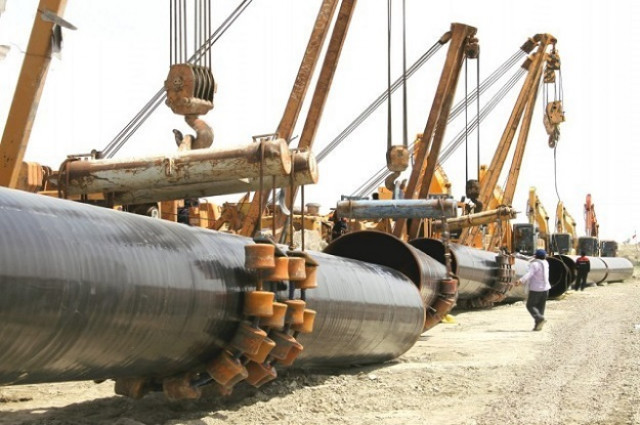Oil prices rebound in Asia but crude oversupply weighs
Rebound is unlikely to be sustained because of a global crude glut

Rebound is unlikely to be sustained because of a global crude glut. PHOTO: AFP
US benchmark West Texas Intermediate (WTI) for September delivery edged up 26 cents to $48.71 a barrel in afternoon Asian trade. The contract finished below $49 on Thursday for the first time since March 31.
Brent crude for September advanced 18 cents to $55.45.
Read: Rebuilding: Iran eyes $185b oil, gas projects
Over the week WTI is down more than 4.0 per cent and Brent has lost nearly 3.0 per cent.
Analysts said the prospect of Iranian oil returning to the oversupplied market after Tehran reached a deal with major powers over its nuclear ambitions was dampening appetite.
The deal will see world powers lift crippling economic sanctions, which have restricted Iran's oil exports, in return for toning down its atomic programme.
"Once sanctions have been lifted, the Iranian authorities assert that the country could double exports within two months. This would be an increase of over one million barrels per day to an already oversupplied market," said Tom Pugh, commodities analyst with Capital Economics.
"Iran does have considerable quantities of crude oil in storage, both on land and at sea, which could be sold as soon as sanctions are lifted," he said in a market commentary, adding that estimates of the country's stockpiles range between 10 million and 40 million barrels.
Iran has the fourth biggest proven oil reserves in the world.
Read: Proposed: Byco Petroleum to merge with its holding company
Oil prices have plummeted from above $100 a barrel in June last year because of the supply glut brought about by strong production from the United States and the Organisation of the Petroleum Exporting Countries led by Saudi Arabia.
"We doubt that Saudi Arabia is going to cut its oil production to make room for Iran. Therefore, if and when Iranian oil exports begin to come back to the market, they should put further downward pressure on prices," Pugh said.



















COMMENTS
Comments are moderated and generally will be posted if they are on-topic and not abusive.
For more information, please see our Comments FAQ